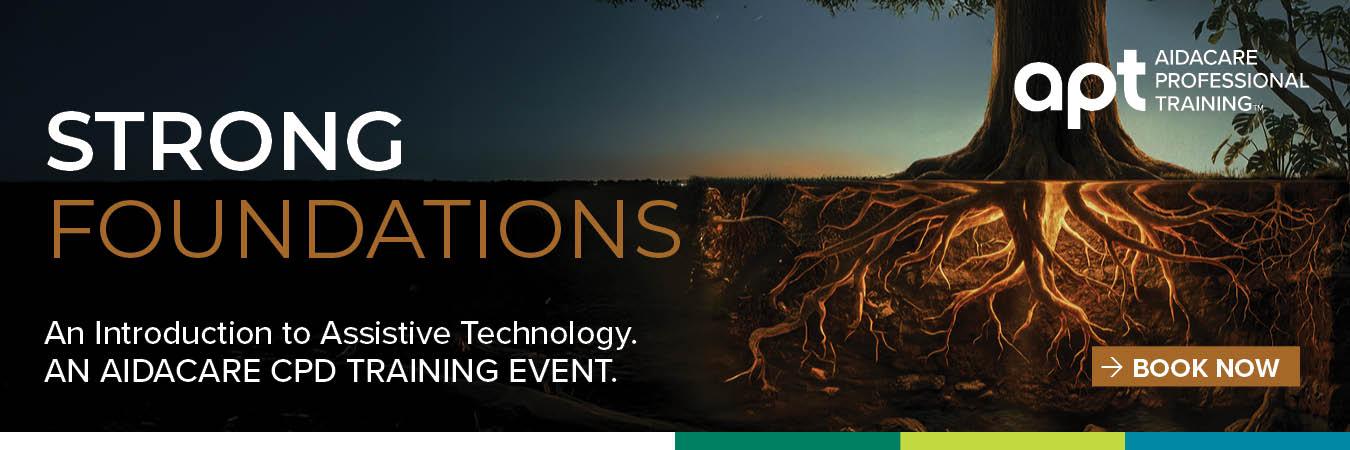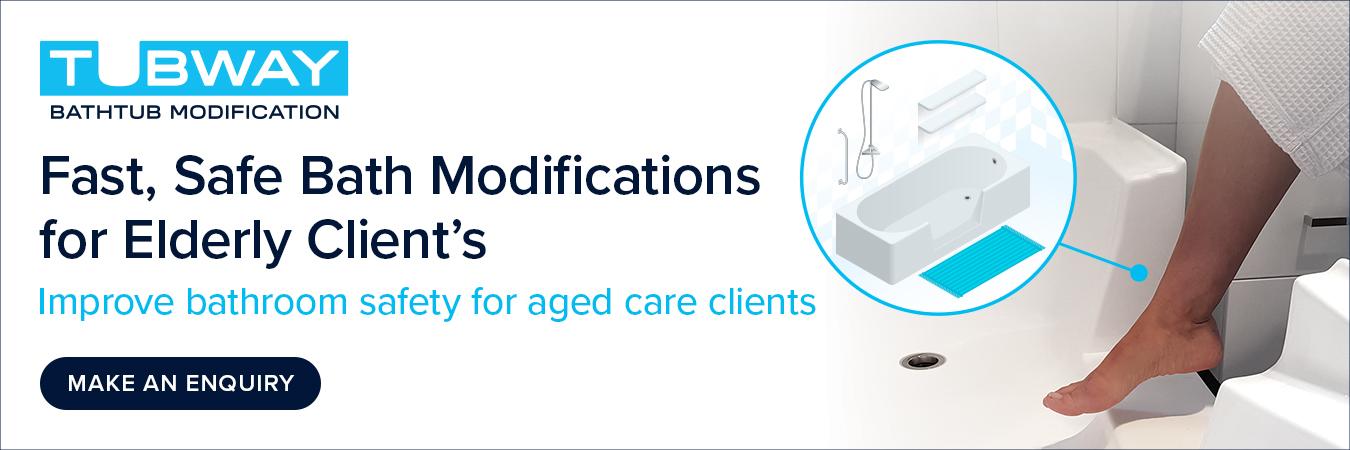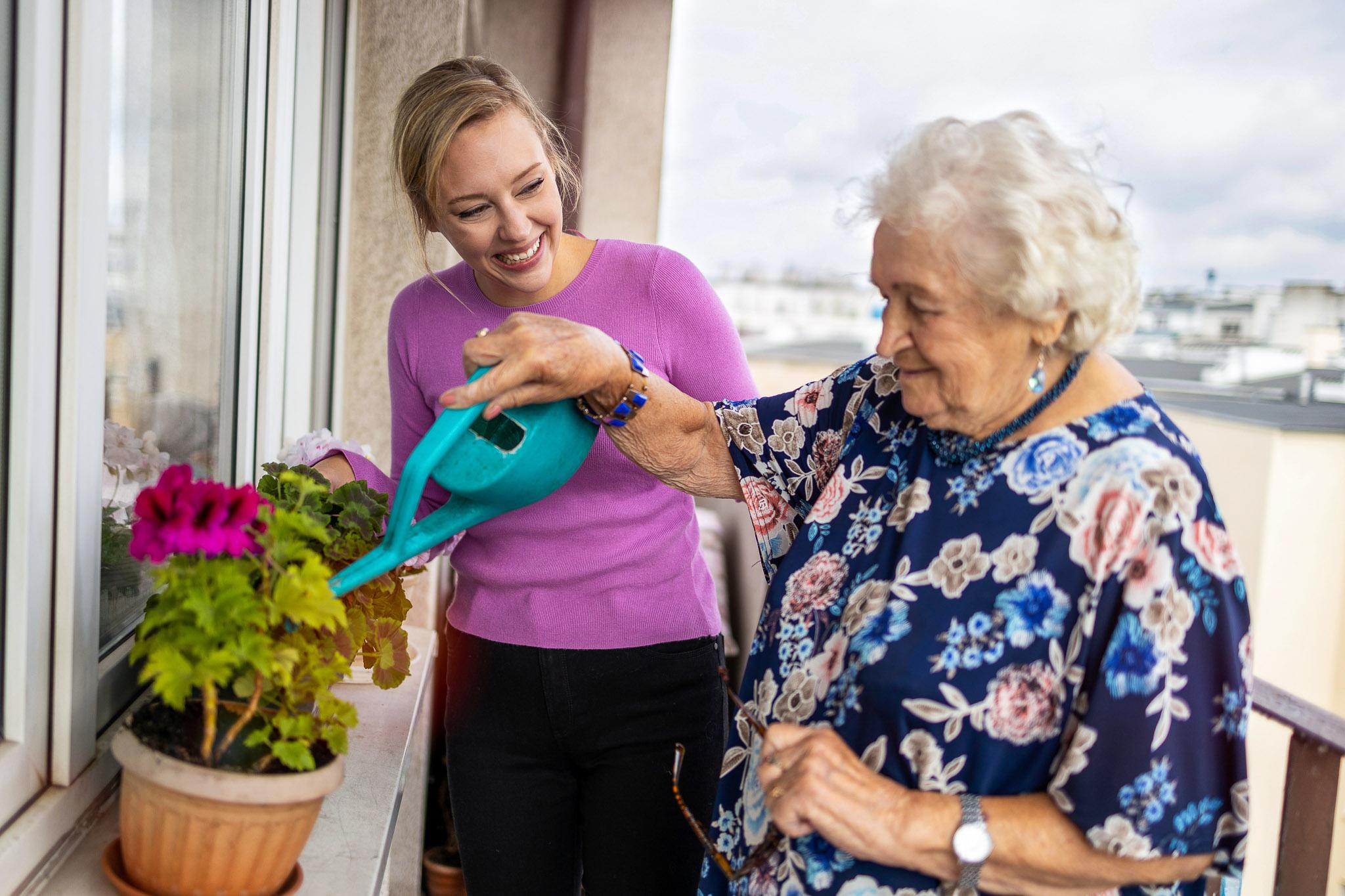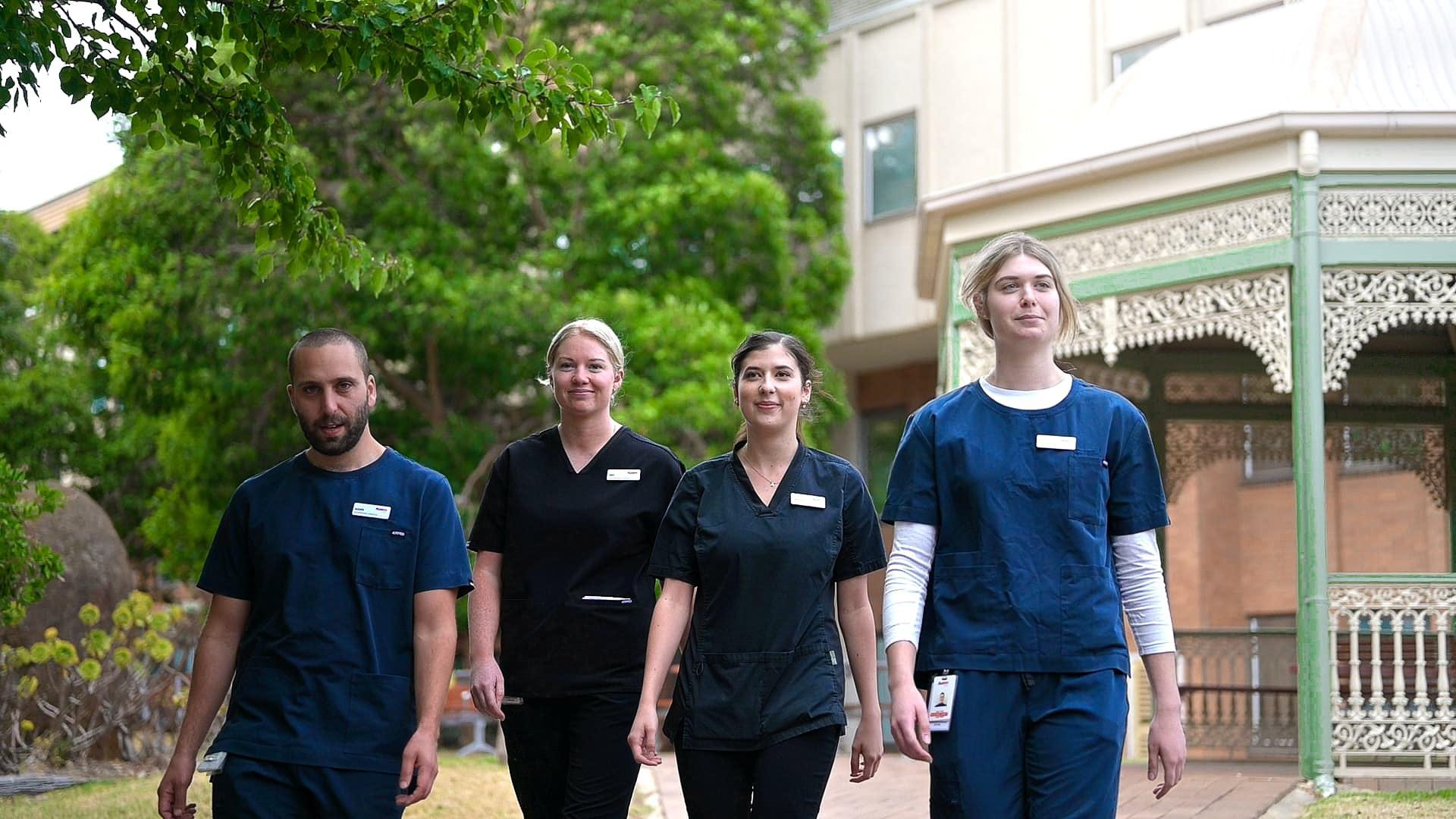
Published: Thursday 6 November 2025
What is My Aged Care?
My Aged Care (MAC) is the main entry point to the aged care system in Australia. It was introduced on 1 July 2013 and consists of the My Aged Care website and the My Aged Care contact centre (1800 200 422).
My Aged Care provides information about aged care services to consumers, family members and carers, as well as service providers and health professionals.
Older people wishing to receive Commonwealth funded aged care services are required to apply for an assessment through My Aged Care. When a person calls the contact centre, they will be asked for permission to create a personalised client record which will store information about assessments and services they receive. They will undertake a triage process to consider the reason for the assessment, the services currently being received, with details on functional and general health, wellbeing and safety, and any advice for the assessment team also gathered.
How are consumers assessed for aged care services?
As of 9 December 2024, there will be a Single Assessment workforce that replaces the previous Regional Assessment Service (RAS) and Aged Care Assessment Teams (ACATs) and will integrate the new independent Australian National Aged Care Classification (AN-ACC) assessors for residential aged care.
Assessment conducted by the Single Assessment Workforce are for:
home support assessments for the Commonwealth Home Support Programme (CHSP)
comprehensive assessments for
the Support at Home Program
specialist and flexible aged care programs
residential respite
entry into residential aged care.
Older people seeking entry into the aged care system and eligibility for residential aged care are now assessed using the Integrated Assessment Tool. Funding for residential aged care is assessed using the AN-ACC Assessment Tool.
Clinician assessors are available to assist with triage and can recommend CHSP services if required. Non clinician assessors can consult clinician assessors to consider clinical needs identified in the assessment.
The assessment results are provided in a summary that outline the goals and recommendations based on the assessed needs. This information informs the service type (i.e. home-based services or residential care), the funding category (for home based aged care only), and the support plan.
Who is eligible for an aged care assessment?
To access aged care services older people must undergo an aged care needs assessment conducted by an aged care assessor. Under the new Act, the following groups will be eligible for an aged care assessment:
people aged 65 years and over, or
Aboriginal and Torres Strait Islander people aged 50 years and over
People aged 50 years and over who are homeless or at risk of homelessness.
Eligibility also depends on the older person having care needs, such as:
physical, cognitive or social difficulties with activities of daily living, quality of life, and/or
requiring assistive technology, equipment or support, such as help to use equipment or products to stay physically, mentally or socially able to function independently.
How do I make a referral through My Aged Care?
To support timely and accurate referrals for aged care assessments, health professionals have access to several streamlined referral options through My Aged Care.
Make a Referral online tool available via the My Aged Care website, to determine eligibility for government funded aged care services. The Make a Referral form will take approximately 15-20 minutes to complete
Phone referral by calling the My Aged Care Contact Centre on 1800 200 422
If the person you are referring has registered previously, you can help them call My Aged Care on 1800 200 422 to discuss any changes in circumstance/care needs.
How do people receive services through the Aged Care System?
Home Based Aged Care
The Commonwealth funds several programs that support older people to remain at home. These programs offer short term and ongoing supports that are tailored to the individual based on their assessed needs.
From 1 November 2025 the Home Care Packages (HCP) Program and the Short-Term Restorative Care (STRC) Program are replaced by the Support at Home Program.
The Commonwealth Home Support Program (CHSP) will continue with the introduction of the Support at Home Program and will remain in place until July 2027 when the program is expected to roll into the Support at Home Program.
Commonwealth Home Support Programme (CHSP)
The CHSP is an entry level programme for older people who need some help with daily tasks to live independently at home. The CHSP commenced on 1 July 2015. The CHSP combines the following four programmes:
Commonwealth Home and Community Care (HACC) Programme
National Respite for Carers Programme (NRCP)
Day Therapy Centres (DTC) Programme
Assistance with Care and Housing for the Aged (ACHA) Programme
To be eligible for CHSP services, a person must be aged 65 or over (or over 50 for Aboriginal and Torres Strait Islander people). Registration with My Aged Care and an assessment are required to be approved for care. Services available through the CHSP include:
Community and home support services such as domestic assistance (eg. cleaning, laundry), personal care (eg. help with showering or getting dressed), home maintenance, nursing care and transport assistance
Food services such as help with making meals and delivering meals to a person’s home
Allied health support services such as occupational therapy, physiotherapy and speech pathology
Services for carers such as respite care and counselling are also available through the CHSP.
Support at Home
At the commencement of the new Aged Care Act, the home based aged care services delivered under Home Care Packages (HCP) and Short-Term Restorative Care (STRC) will fold into the new Support at Home Program.
Key features of Support at Home:
- 8 ongoing classifications – these classification levels reflect the level of funding older people are assessed as needing or were previously provided under the HCP program.
| Classification | Quarterly budget | Annual amount |
|---|---|---|
| 1 | $2,674.18 | $10,697.72 |
| 2 | $3,995.42 | $15,981.68 |
| 3 | $5,479.94 | $21,919.77 |
| 4 | $7,386.33 | $29,545.33 |
| 5 | $9,883.76 | $39,535.04 |
| 6 | $11,989.35 | $47,957.41 |
| 7 | $14,530.53 | $58,122.13 |
| 8 | $19,427.25 | $77,709.00 |
3 short-term support classifications: these programs support older people to receive time limited and focused supports.
the Restorative Care Pathway This pathway supports older people to regain or maintain independence with a focus on allied health interventions to build strengths and capabilities. The program is available for 12 weeks (with the possibility of a 4 week extension) and participants can access funding for assistive technology and home modifications to support their restorative care goals.
the End-of-Life Pathway This pathway supports older people who have 3 months or less to live to receive $25,000 funding to increase their in-home care services to allow them to remain at home during their final weeks and days. The pathway can be extended to 16 weeks on request and a specific assessment pathway involving the treating physician is required to access this program.
the Assistive Technology and Home Modifications (AT-HM) Scheme Older people with an assessed need for equipment, products and/or home modifications can access funding when receiving both ongoing services and short term pathways (i.e. Restorative Care Pathway and End of Life Pathway). Funding is allocated according to fixed tiers at the point of assessment. The program is able to fund products, equipment and home modifications that are listed as eligible on the inclusions list.
For ongoing and short-term classifications, funded aged care services are grouped into three categories:
clinical supports – such as nursing care, occupational therapy and physiotherapy.
independence – such as personal care, social support, respite care, community engagement and transport.
everyday living – such as domestic assistance, home maintenance and repairs, and meals.
Nb. Services delivered under the Clinical Care category will be fully funded by the Commonwealth, meaning there will be no consumer contribution required. For services under the Independence and Everyday living categories, consumer contributions will be required based an individual’s means testing.
Residential aged care
These services support older people who cannot live independently in their own home by providing a range of care options and accommodation. This might include:
short-term respite care,
emergency care, or
permanent placement.
The Australian National Aged Care Classification (AN-ACC) is the assessment model for the allocation of Commonwealth funding and subsidy to residential aged care settings and commenced on 1 October 2022.
Residents are assessed by a team of independent assessors who are part of the Single Assessment System. The assessment is administered by trained clinicians (including occupational therapists) and considers a person’s physical and cognitive ability, behaviour and mental health.
Following assessment, residents are categorised into one of 13 classification levels best matching their assessed care needs. The classification levels determine the residents cost for care based on the interaction of key factors namely mobility, cognitive ability, pressure sore risk for non-mobile people, care required for wounds, falls risk and daily medical interventions.
AN-ACC classifications include funding for aged care providers to deliver allied health services to residents. This includes access to allied health services as part of an individual therapy program aimed at maintaining or restoring a resident’s ability to perform daily tasks.
Providers are responsible for deciding how to best meet the care needs of their residents and ensuring allied health treatments are deemed beneficial to the resident.
Respite Care
Residential respite care supports older people or their carers to have a break from their usual care arrangements.
People can enter residential aged care facilities to have respite care with a subsidy and supplement provided by the government to support those eligible.
Eligible clients are entitled to 63 days of respite care in a financial year. This can be extended by up to another 21 days if approved by an aged care assessor.
Emergency Care
Emergency respite in residential aged care can be arranged for people who haven't yet received their assessment and approval for services.
Specialised and Flexible Services
There are several different programmes that deliver specialised and flexible services. These include the Transition Care Programme (TCP), Multipurpose services (MPS) and the National Aboriginal and Torres Strait Islander Flexible Aged Care (NATSIFAC) Program.
Transition Care Program
This service offers older people the opportunity to regain function following a hospital stay. The program offers short-term, goal oriented and therapy-focused care and can be offered in a person’s home, a community setting or a residential aged care setting.
Those eligible include older people who have had a stay in hospital and would otherwise be eligible for residential care. They must be assessed while they are a hospital in-patient. Transition Care is provided for a maximum of 12 weeks; however it is possible to extend this depending on an individual’s circumstances.
Multi-Purpose Services (MPS)
This program provides integrated health and aged care services for small, rural and remote communities and is delivered through both Commonwealth and state and territory governments.
National Aboriginal and Torres Strait Islander Flexible Aged Care (NATSIFAC) Program
These services are typically offered in rural and remote communities to ensure they’re available to older Aboriginal and Torres Strait Islander people’s home and community.
What other Commonwealth Schemes support Older People?
There are other Commonwealth schemes that support older people namely the National Disability Insurance Scheme and the Veterans Affairs program.
Both require key eligibility criteria to be met and whilst they may offer some aligned services and supports, they are administered differently and cannot duplicate services being offered from other schemes.
How can OTs work in the aged care system?
From 1 November 2025 there will be a new universal provider registration model that will align with the new Aged Care Act. It will apply to all providers delivering Australian Government-funded aged care
This model will have 6 registration categories that will group services based on similar care complexity and risk. The registration categories are:
| Provider registration category | Description | Service types |
|---|---|---|
| Category 1 | Home and community services | • Domestic assistance • Home maintenance and repairs • Meals • Transport |
| Category 2 | Assistive technology and home modifications | • Equipment and products • Home adjustments |
| Category 3 | Advisory and support services | • Hoarding and squalor assistance • Social support and community engagement |
| Category 4 | Personal care and care support in the home or community (including respite) | • Allied health and other therapy • Personal care • Nutrition • Therapeutic services for independent living • Home or community general respite • Community cottage respite • Care management • Restorative care management |
| Category 5 | Nursing and transition care | • Nursing care • Assistance with transition care |
| Category 6 | Residential care (including respite) | • Residential accommodation • Residential everyday living • Residential services • Residential clinical care |
Providers will only need to register for the services they supply and their regulatory obligations and oversight will be proportionate to the risk of the services they’ve registered to deliver.
Workers delivering a ‘risk assessed’ role will need to have completed a worker screening process. This process is being consolidated with other existing programs like NDIS worker screening and state/territory work screening requirements and will formally come into effect from June 2026.
OTs can deliver services under the new registration program through one of the following options:
Register as an aged care provider: If you are a sole trader or non-corporation you can apply to deliver Commonwealth funded aged care services. This process requires registrants to have an ABN and evidence that you can deliver services under your proposed registration category (Nb. governance obligations will be relative to the registration category with providers delivering services under Categories 4, 5 and 6 required to demonstrate compliance with the Strengthened Aged Care Quality Standards) (see notes below regarding Single Provider model).
Associated Provider: Alternatively, if you wish to sub-contract your services to registered providers then a new registration category called ‘associated providers’ will allow for this. The registered provider will be responsible for meeting the governance and compliance obligations for the services being delivered by the associated provider and will need to report all associated providers who are delivering services under Categories 4, 5 and 6.
Aged Care Worker: The Aged Care Quality and Safety Commission recognise people delivering services available through the Service List through registered providers or associated providers as aged care workers.
Read this resource from the Aged Care Quality and Safety Commission for further details on associated providers and aged care workers.
From 1 November 2025, all aged care workers and responsible persons (such as a CEO or Board Member) will continue to need either a:
police certificate (not older than 3 years) that does not record certain offences, or
an NDIS worker screening check.
An aged car worker (or responsible person) will also need to provide a statutory declaration in certain circumstances - this applies of the person much commence work while their police certificate or NDIS worker screening clearance is pending of if they have been a permanent resident or citizen of a country other than Australia from the age of 16.
Work is underway to make changes in the future to recognise Australian Health Practitioner Regulatory Agency (Ahpra) registration for the purpose of aged care working screening.
Single Provider Model for In-Home Aged Care
From 1 November a single provider approach to registration will be adopted whereby older people can only receive services from a single registered aged care provider. There are plans to expand this to a multi-provider model no earlier than July 2027 – this approach would see older people able to access services across the registration categories from a range of registered providers.
Until that time, however, registered providers will be obliged to supply all the services an older person requires. This means having systems in place to source and provide services across the registration categories that align with the needs of the older person. Services can be delivered through sub-contracted businesses or associated providers.
It is worth noting that you can register as both an associated provider and a registered provider at the same time.
What is indicative pricing under Support at Home Program?
When Support at Home commences on 1 November, services will be priced in accordance with the Indicative Price Ranges. The Department published the indicative price ranges to provide market-level information that will assist participants to understand how a provider’s pricing compares with other providers across the country.
The indicative price ranges were built based on data obtained from Home Care Package (HCP) providers and is an indication of the prices they intend to charge under Support at Home. Providers will continue to set their own prices for services as they have done for the Home Care Packages (HCP) Program until Australian Government price caps are introduced from 1 July 2026.
The indicative range for OTs is
$174 per hour at the lower end of the range.
to $220 per hour at the upper end of the range.
The national median price is $200 per hour.
Newly released guidance from the Department has confirmed that both direct (face to face) time and indirect time can be billed under the indicative pricing model for Support at Home.
The unit price for both direct and indirect service provision is time based, which is typically 1 hour of service delivered during standard business hours. Clinicians have the option for separate unit prices for direct and indirect activities.
The unit price is expected to incorporate the costs required to deliver services. Travel cannot be charged separately but instead is expected to be incorporated into the direct care unit price.
Direct care unit prices can differ to reflect different service provision circumstances i.e. clinic vs home based vs telehealth, different locations and thus allows for pricing that reflects the differences in travel times.
Do I need to charge GST on my unit pricing?
GST for healthcare professionals in Australia is based on the following key legislative and interpretative sources from the Australian Taxation Office (ATO). These sources collectively establish the framework that dictates when healthcare services are GST-free versus when GST must be charged.
A New Tax System (Goods and Services Tax) Act 1999: This is the primary legislation that defines how GST operates in Australia.
Division 38, specifically Subdivision 38-B (Health goods and services): This subdivision outlines which health-related supplies are GST-free. Key sections include:
Section 38-7 (Medical services): Defines what constitutes a GST-free medical service.
Section 38-10 (Other health services): Extends GST-free status to services provided by specified health professionals (e.g., physiotherapists, nurses, psychologists) where the service is for the care of the recipient and is generally accepted in the profession.
Section 38-47 (GST-free supplies of goods related to health): Specifies conditions for certain health goods to be GST-free.
Australian Taxation Office (ATO) Public Rulings and Guidance: The ATO provides detailed guidance on how the GST Act applies in practice.
GSTR 2006/9 - Goods and services tax: supplies of medical services: This ruling provides comprehensive guidance on interpreting "medical services" for GST purposes.
GST and Health Professionals (on the ATO website): The ATO website provides summary information and specific guidance for various health professions, clarifying what services are generally GST-free and when GST might apply. This covers topics like cosmetic surgery, administrative fees, and non-health goods.
What does this mean for registered providers?
This means that when delivering services under Support at Home, including allied health services:
Registered providers must not include GST on invoices issued to participants
Registered providers must not charge GST to the participant’s budget
Claims submitted to Services Australia must reflect the GST-free amount.
If the provider incurs GST through subcontractor (associated provider) arrangements, they may be eligible to claim GST credit through their Business Activity Statements (BAS) or annual GST return.
What does this mean for associated providers who deliver allied health services?
Associated providers delivering allied health services who are engaged by registered Support at Home providers are not directly claiming subsidies from Services Australia.
Instead, they issue invoice to the registered provider for the service delivered.
If the associated provider is registered for GST, they must include GST in their invoice to the registered provider.
The associated provider is not responsible for managing participant invoicing and claiming
The associated provider charges GST (if applicable) to the provider.
You may want to review the information available on this page of the Australian Taxation Office.
How do I make a complaint about My Aged Care?
There are several different ways for service providers and health professionals to make a complaint about any aspect of My Aged Care:
By visiting the ‘Contact us’ page on the My Aged Care website and selecting ‘Provide feedback, ask a question or make a complaint’
By calling the My Aged Care contact centre on 1800 200 422
By contacting the Department of Health via an online form or email
By contacting the Aged Care Complaints Commissioner on 1800 550 552 or by visiting their website.
Where can I find key resources and materials to help me understand the aged care system and the reforms starting 1 November
The Department of Health Disability and Ageing Support at Home page lists all the resources related to the Support at Home Program and the home based aged care reforms.
OTA have summarised some key points about the new Support at Home Program in these practice resources:
Member Update - Aged Care (October 2025)
Understanding the Support at Home Short Term Programs - Restorative Care Pathway
Understanding the Support at Home Short Term Programs - AT/HM Pathway
Understanding the Support at Home Short Term Programs - End of Life Pathway
Understanding the Support at Home Program - Preparing to work in Support at Home
Other key resources to review (and that were used to develop the content on this page) include:
Department of Health Disability and Ageing Resources:
Support at home guidance for health professionals
Support at Home prices for allied health and nursing services – fact sheet for providers
End-of-Life Pathway – fact sheet for doctors and nurse practitioners
Support at Home – Frequently asked questions for older people
Support at Home program – Pooled care management funding and service delivery branches fact sheet
Support at Home program – Frequently asked questions for providers
Support at Home service list FAQs
Support at Home – Template for service agreements
Assistive Technology and Home Modifications (AT-HM) scheme data collection
Aboriginal and Torres Strait Islander Aged Care Assessment Organisations
Aged Care Provider Requirements Search Tool
Aged care Quality and Safety Commission Resources:
Statement of Expectations to the Aged Care Quality and Safety Commission 2025–26
Guidance for associated providers | Aged Care Quality and Safety Commission
To stay across the various changes across aged care, we encourage you to sign up for the Aged Care Quality and Safety Commission E-bulletin and the Department of Health Disability and Ageing newsletters.
Related Tags




